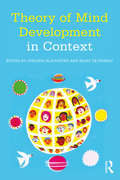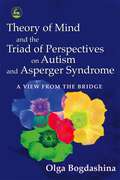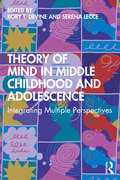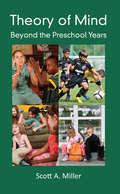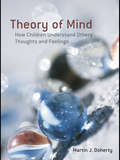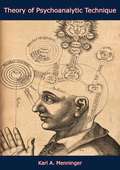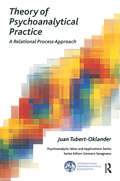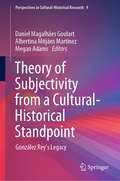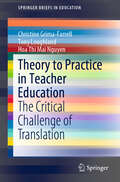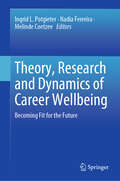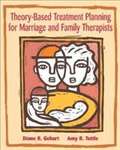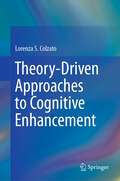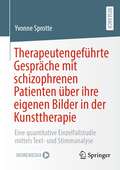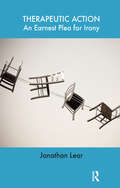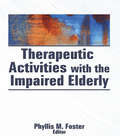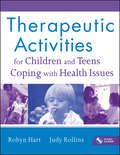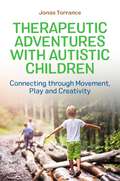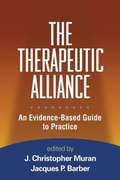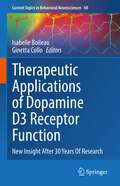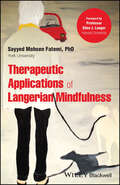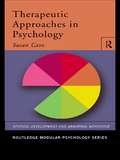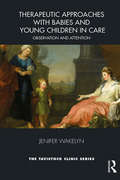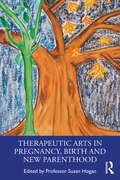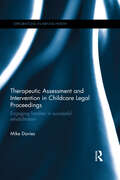- Table View
- List View
Theory of Mind Development in Context
by Virginia Slaughter Marc De RosnayTheory of Mind Development in Context is the first book of its kind to explore how children’s environments shape their theory of mind and, in turn, their ability to interact effectively with others. Based on world-leading research, and inspired by the ground-breaking work of Candida Peterson, the original collected chapters demonstrate that children’s understanding of other people is shaped by their everyday environment. Specifically, the chapters illustrate how theory of mind development varies with broad cultural context, socioeconomic status, institutional versus home rearing, family size, parental communication style, and aspects of schooling. The volume also features research showing that, by virtue of their condition, children who are deaf or who have an autism spectrum disorder function in environments that differ from those of typical children and this in turn influences their theory of mind. Although much important research has emphasized the role of nature in theory of mind development, this book highlights that children’s understanding of other people is nurtured through their everyday experiences and interactions. This perspective is essential for students, researchers, and practitioners to gain a complete understanding of how this fundamental skill develops in humans. The book is invaluable for academic researchers and advanced students in developmental psychology, education, social psychology, cognitive psychology, and the social sciences, as well as practicing psychologists, counselors, and psychiatrists, particularly those who deal with disorders involving social and/or communicative deficits.
Theory of Mind and the Triad of Perspectives on Autism and Asperger Syndrome: A View from the Bridge
by Olga BogdashinaInspired by the often uncomfortable interplay between autistic individuals, parents and professionals in understanding autistic spectrum conditions, Olga Bogdashina uses the concept of Theory of Mind (ToM) to consider these groups' different (and often conflicting) perspectives. ToM is the ability to imagine and make judgements about what others feel and think; its absence in autistic individuals is called 'mindblindness'. This book addresses the 'mindblindness' of people united in their interest in autism but divided by their different angles and perspectives. Divided into four parts, the book first defines autism, then the views of the three main groups working with it - autistic individuals, parents and professionals - under the headings of classifications, diagnosis, causes, development, theories and treatment. By comparing and reconciling the different perspectives in this way, the book helps each group to understand and predict each other's responses and behaviours. This enlightening and innovative book offers a unique way of 'stepping in each other's shoes' and is a valuable resource for all people living or working with autism.
Theory of Mind in Middle Childhood and Adolescence: Integrating Multiple Perspectives
by Rory T. Devine and Serena LecceThis landmark text integrates diverse perspectives on how humans understand others’ minds (or ‘theory of mind’) beyond early childhood into middle childhood and adolescence. It explores how the neural, cognitive, and social changes of middle childhood and adolescence shape the ongoing development of theory of mind, and how theory of mind helps children navigate their lives. Drawing on cutting-edge research from leading international experts, this book provides a survey and analysis of the current state and future direction of the field. It is organized around three themes relating to the key issues in contemporary research. The first part focuses on the biological and cognitive bases of theory of mind in middle childhood and adolescence. The second part goes on to explore the social predictors and consequences, considering how theory of mind is shaped by social experiences and, in turn, impacts children’s social lives in middle childhood and adolescence. Finally, the third part focuses on theory of mind in the context of neurodiversity, disability, and youth mental health in middle childhood and adolescence. Offering in-depth understanding for all students and scholars of developmental and cognitive psychology, neuroscience, clinical psychology and psychiatry, and education, this valuable text also identifies an agenda for future scholarship on this exciting topic.
Theory of Mind: Beyond the Preschool Years
by Scott A. MillerThis is the first book to provide a comprehensive review of the burgeoning literature on theory of mind (TOM) after the preschool years and the first to integrate this literature with other approaches to the study of social understanding. By highlighting the relationship between early and later developments, the book provides readers with a greater understanding of what we know and what we still need to know about higher-order TOM. Although the focus is on development in typical populations, development in individuals with autism and in older adults is also explored to give readers a deeper understanding of possible problems in development. Examining the later developments of TOM gives readers a greater understanding of: Developments that occur after the age of 5. Individual differences in rate of development and atypical development and the effects of those differences. The differences in rate of mastery which become more marked, and therefore more informative, with increased age. What it means to have a “good theory of mind.” The differences between first- and second- order theory of mind development in preschoolers, older children, adolescents, and adults. The range of beliefs available to children at various ages, providing a fuller picture of what is meant by “understanding of belief.” After the introduction, the literature on first-order developments during the preschool period is summarized to serve as a backdrop for understanding more advanced developments. Chapter 3 is devoted to the second-order false belief task. Chapters 4 and 5 introduce a variety of other measures for understanding higher-level forms of TOM thereby providing readers with greater insight into other cognitive and social developmental outcomes. Chapter 6 discusses the relation between children’s TOM abilities and other aspects of their development. Chapters 7 and 8 place the work in a historical context. First, the research on the development of social and mental worlds that predated the emergence of TOM is examined. Chapter 8 then provides a comparative treatment of the two literatures and how they complement one another. Ideal as a supplement in graduate or advanced undergraduate courses in theory of mind, cognitive development, or social development taught in psychology and education. Veteran researchers will also appreciate this book‘s unique synthesis of this critical research.
Theory of Mind: How Children Understand Others' Thoughts and Feelings (International Texts in Developmental Psychology)
by Martin DohertyMost of us are continually aware that others have thoughts and feelings – but are children? When? This book is a concise and readable review of the extensive research into children’s understanding of what other people think and feel, a central topic in developmental psychology known as "Theory of Mind". The understanding of belief is central to this text, which explains in simple terms what representational theory of mind is all about, and shows how researchers have demonstrated this understanding in 4-year-olds. The book considers what leads to this understanding, including the role of pretend play, understanding of attention and eye direction, and other precursors to representational understanding of mind. The general relevance of theory of mind is demonstrated through coverage of the development of other mental state concepts, and the relationship between understanding mental representation and other representational media. The author also carefully summarizes current research on the relationship between theory of mind and concurrent developments in executive functioning, and the understanding of language. The book closes by considering autism. A major achievement of theory of mind research is the light it has helped throw on this puzzling developmental disorder. Providing a comprehensive overview of 25 years of research into theory of mind, the book will be of great interest to both students and researchers in psychology, philosophy and the cognitive sciences.
Theory of Psychoanalytic Technique
by Karl A. MenningerThis book examines the essential dynamics of the interpersonal situation involved in a two-party contract or—to use the word preferred by Dr. Maxwell Gitelson—compact. The author applies these dynamic principles to the psychoanalytic treatment situation, pointing out the pressures and values which can be mobilized to favor communication by the patient to the listening therapist and the extent to which these are followed by gratifications and frustrations which alter the balance in such a way as to determine a progressive course. If the reader will note the topics of the chapters listed he will observe that the reactions of both patient and therapist to each other in the interactive process or compact are carried systematically and successively to a point where separation of the contractees is logical. This over-all view will permit us to examine such familiar phenomena as transference, regression, resistance, interpretation, and so on in a perspective which gives them a clearer meaning. It will be objected that this sharpness or clarity involves certain distortions or misrepresentations, dependent upon oversimplification. But this is the perennial dilemma of the teacher: the teaching of facts and figures versus the teaching of truth.—Print ed.
Theory of Psychoanalytical Practice: A Relational Process Approach (The International Psychoanalytical Association Psychoanalytic Ideas and Applications Series)
by Juan Tubert-OklanderThis book makes an original contribution to the study of the psychoanalytic process from a relational point of view, and at the same time serves as a textbook on the theory of technique. It provides a general exposition of the theory of psychoanalytic practice from a process perspective that emphasizes the analytic relationship, the dyadic nature of the psychoanalytic situation, and the impact of unconscious interaction between its two parties, and also includes the authors personal point of view and contributions on the subject.
Theory of Subjectivity from a Cultural-Historical Standpoint: González Rey’s Legacy (Perspectives in Cultural-Historical Research #9)
by Albertina Mitjáns Martínez Daniel Magalhães Goulart Megan AdamsThis book examines key ideas related to the Theory of Subjectivity within a cultural-historical approach. It brings together the intellectual contributions made by Professor Fernando González Rey (1949–2019) towards understanding human subjectivity, and emphasizing their unfolding in different fields and contexts. The book addresses the genesis and development of González Rey’s work, articulating this discussion with the author’s biography. González Rey’s main scientific contribution is the Theory of Subjectivity in a cultural-historical perspective, which is inseparable from Qualitative Epistemology and from its constructive-interpretive methodological expression. The book presents and discusses González Rey’s contributions to different contexts and fields, such as psychological research, education, cultural-historical psychology, human development, motivation, human health and psychotherapy. This book brings together examples of how these ideas have been employed and developed in different fields and contexts.
Theory to Practice in Teacher Education: The Critical Challenge of Translation (SpringerBriefs in Education)
by Christine Grima-Farrell Hoa Thi Nguyen Tony LoughlandThis book offers a theoretically and empirically robust account of what is known about the effective approaches that translate theory to practice in teacher education, presenting evidence from case studies from a diverse range of contexts informed by various methodological foundations. It also provides accounts that support teacher educators involved in both school and university based teacher education.The book offers insights into the translation of theory to practice from the long history of teacher education, the benefit of diverse approaches in terms of the effectiveness of initial teacher education, and the impact of professional standards.
Theory, Research and Dynamics of Career Wellbeing: Becoming Fit for the Future
by Melinde Coetzee Ingrid L. Potgieter Nadia FerreiraThis volume offers a new conceptualization of career wellbeing by viewing the construct as an individual’s long-term contentment with their career outcomes, career achievements, career changes and their sustainable employability amidst the complexities of the contemporary and emerging future digital-driven work environment. In support of this view of career wellbeing, the volume constructs theoretical frameworks for “future-fit” career wellbeing in the digital-driven work–life context. The chapters juxtaposition current research trends in terms of future potential directions for research on career wellbeing in Industry 4.0. The volume also critically evaluates the relevance, applicability and utility of the research findings and theoretical premises in various current versus potential Industry 4.0 settings for individuals across the life-span. It offers valuable suggestions for practice and interventions.
Theory-Based Treatment Planning for Marriage and Family Therapists: Integrating Theory and Practice
by Diane R. Gehart Amy R. TuttleThis text is a treatment planner and theory guide for therapists working from systemic and postmodern approaches. Unlike existing resources, this treatment planner provides a means to directly integrate family therapy theory and practice. By providing treatment planning strategies along with complete overviews of specific theories, the book provides a remedy for the common "missing link" between theory and practice. The purpose of this book is to fill the ever-widening gap between formal training in theory and actual practice in managed-care dominated workplaces. The text covers 11 of the most widely used family therapies providing a summary for each theory and then specific strategies for developing a treatment plan.
Theory-Driven Approaches to Cognitive Enhancement
by Lorenza S. ColzatoThis book provides a comprehensive overview of cognitive enhancement, the use of different substances and actions (e. g. , meditation, video game, smart drugs, food supplements, nutrition, brain stimulation, neurofeedback, physical exercise, music, or cognitive training) to enhance human perception, attention, memory, cognitive control, and action in healthy individuals. Chapters contain research on enhancing procedures and activities that will help to further develop enhancement based on individual needs and interests. Chapters also discuss the underlying mechanism of how these means influence and change behaviors and moods. In addition, the book also provides "real-life" examples in which the several means of cognitive enhancement have been successfully applied. It concludes with a call to develop more specific, mechanistic theories to guide cognitive enhancing programs as well as the editor's own tailored-approach proposal for enhancing cognition for individuals. Featured topics include: The effect of caffeine on cognitive abilities. Aerobic exercise and its short-term and long-term effects on cognition. The effect, if any, of Ritalin and Modafinil on promoting cognitive enhancement. Temperature variations and its influences on behavior. The effect of food supplements across the lifespan. "Theory-Driven Approaches to Cognitive Enhancement is a must-have resource for psychologists, physicians, sport and exercise scientists, medical scientists, and teachers". "This book provides a state-of-the-art overview of different aspects of cognitive enhancement. The chapters are very focused, well-structured, in-depth, and rounded up by excellent illustrations. I highly recommend the book to readers interested in the matter". Dr. Julia Karbach, Goethe University "It is overall a highly original book on a timely topic, with a fresh approach and rich in practical and societal implications. The book is written in a very clear way and it is a pleasure to read. " Dr. Anna M. Borghi, Sapienza University of Rome
Therapeutengeführte Gespräche mit schizophrenen Patienten über ihre eigenen Bilder in der Kunsttherapie: Eine quantitative Einzelfallstudie mittels Text- und Stimmanalyse
by Yvonne SprotteAnhand einer explorativen Studie an Patienten mit chronischen Verlaufsformen der Schizophrenie wird in diesem Buch untersucht, ob eine Gruppen-Kunsttherapie mit anschließender Bildbesprechung das Kommunikationsverhalten der Patienten beeinflussen kann. Als potenzielle Indikatoren für das Kommunikationsverhalten werden Merkmale der Stimme und Sprache gewählt, die mit objektiven technischen Analyseverfahren erfasst werden. Sieben Patienten nahmen über einen Zeitraum von sechs Monaten an einer wöchentlichen Kunsttherapie in der Gruppe teil. Hier waren sie bildnerisch tätig. Im Einzelinterview nach drei bis vier Tagen sprachen sie dann mit der Autorin über ihr eigenes Bild, und zwar in Form eines standardisierten Leitfadeninterviews, das digital aufgezeichnet wurde. Die Audiodokumente werden mit validierten computergestützten Analyseverfahren ausgewertet; es werden Veränderungen bei Stimmanalyse-Faktoren gemessen, die eine Aktivierung von Emotionen belegen. Sie lassen sich naheliegend als Ergebnis eines kathartischen Heilungsprozesses interpretieren. Die in dieser Studie vorgestellten Methoden haben das Potenzial, einen wesentlichen Beitrag zur quantitativen Erforschung der Wirksamkeit und Wirkweise der Kunsttherapie zu leisten.
Therapeutic Action: A Guide to Psychoanalytic Therapy
by Enrico E. JonesDiscusses the Q-sort method for quantifying and tracking progress in psychotherapy.
Therapeutic Action: An Earnest Plea for Irony
by Jonathan LearThis book discusses how to write about the process of psychic change without betraying either love or science. It investigates the concepts of subjectivity and objectivity that are appropriate for psychoanalysts, the concepts of internalization and of transference.
Therapeutic Activities With the Impaired Elderly
by Phyllis M. FosterThis highly practical volume presents valuable insights for all professionals who provide activities for the impaired elderly. It will serve as a helpful resource for both those who work directly with the aged in institutional settings, as well for those who train activities counselors.Therapeutic Activities With the Impaired Elderly addresses a number of pertinent issues and provides useful information on designing and implementing recreation and socialization programs, memory improvement classes, sign language activities, and leisure education and counseling.
Therapeutic Activities for Children and Teens Coping with Health Issues
by Judy Rollins Robyn HartBuilding on children's natural inclinations to pretend and reenact, play therapy is widely used in the treatment of psychological problems in childhood. This book is the only one of its kind with more than 200 therapeutic activities specifically designed for working with children and teenagers within the healthcare system. It provides evidence-based, age-appropriate activities for interventions that promote coping. The activities target topics such as separation anxiety, self-esteem issues, body image, death, isolation, and pain. Mental health practitioners will appreciate its "cookbook" format, with quickly read and implemented activities.
Therapeutic Adventures with Autistic Children: Connecting through Movement, Play and Creativity
by Jonas TorranceA vivid exploration of working with autistic children using empowering techniques from a range of creative therapies. Each chapter in this heartening book is the story of a child with autism and how therapy was pivotal in confronting his or her individual dilemma. Covering many of the behaviours characteristic to autism, such as uncontrolled anger and obsessive tendencies, the therapies used range from drawing and dancing to meditation and martial arts, depending on the needs and interests of each child. The key message is that investing in the relationship between the therapist and the child - so that they grow, play and develop together - is transformative.
Therapeutic Alliance
by Jacques Barber J. MuranThis state-of-the-art book presents research-based practice guidelines that clinicians of any orientation can use to optimize the therapeutic alliance. Leading proponents of the major psychotherapeutic approaches explain just what a good alliance is, how to create it, and how to recognize and repair alliance ruptures. Applications in individual, group, couple, and family therapy are explored; case examples vividly illustrate the concepts and techniques. Links between the quality of the alliance and client outcomes are elucidated. A section on training fills a major gap in the field, reviewing proven strategies for helping therapists to develop key relationship-building skills.
Therapeutic Applications of Dopamine D3 Receptor Function: New Insight After 30 Years Of Research (Current Topics in Behavioral Neurosciences #60)
by Isabelle Boileau Ginetta ColloThe CTBN volume Therapeutic Applications of Dopamine D3 Receptor Function reviews the state of the knowledge on the dopamine D3 receptor and its role in human behavior and disease (i.e.: neuropsychiatric illnesses including schizophrenia, mood disorders, Parkinson’s disease, restless legs syndrome, addictions and substance use disorders). The volume is written by leading experts across multidisciplinary areas (imaging, biobehavioral testing and clinical trials, preclinical models / molecular pharmacology) converging on the therapeutic implications / potential of the D3 receptor.The D3 dopamine receptor is a member of the D2-like family of G protein-coupled receptors. It was cloned and characterized almost 25 years ago. A key feature of the D3 dopamine receptor system, which has attracted considerable attention, is its anatomical localization remarkably restricted to the limbic circuitry. This has spurred the hypothesis that D3 involvement could contribute to the pathophysiology of neuropsychiatric disorders (or to some features of neuropsychiatric disorders), including but not limited to psychosis, addictions and substance abuse, mood and movement disorders.
Therapeutic Applications of Langerian Mindfulness
by Sayyed Mohsen Fatemi Ph.D.Therapeutic Applications of Langerian Mindfulness Explore an authoritative new treatment of Langerian mindfulness Therapeutic Applications of Langerian Mindfulness delivers a collection of novel psychotherapeutic techniques grounded in Langerian mindfulness for dealing with psychological problems. The author draws on empirically grounded psychological research to demonstrate new approaches to fostering creativity and novelty in the reader or the reader’s patients. The book includes practical exercises that allow the reader to apply the concepts and techniques discussed within to help them manage anxiety, relationships, creativity, and productivity and performance. It also includes: A thorough introduction to Langerian mindfulness and how it differs from meditation-based mindfulness Practical discussions of the relationship between mindfulness, anxiety, and depression, as well as the key strategies for dealing with anxiety and depression with Langerian mindfulness Comprehensive explorations of mindfulness and agency, as well as the relationship between agency and wellness In-depth examinations of the phenomenological configuration of mindfulness, including discussions of the psychology of presence Perfect for mindfulness practitioners and enthusiasts in both lay and professional audiences, Therapeutic Applications of Langerian Mindfulness is an indispensable resource for therapists and practitioners seeking a one-stop reference on Langerian mindfulness. “In Therapeutic Applications of Langerian Mindfulness, Professor Sayyed Mohsen Fatemi provides clear and concrete examples of how Langerian mindfulness both liberates and heals. Basing his reflections on the inspiration of his mentor, Professor Ellen Langer, Fatemi shows in brilliant, methodical chapters the range of ways this mindfulness approach can transform lives. In the end, what both Langer and Fatemi stress is the power of attitude to make remarkable shifts in our capacity for mental and physical wellbeing. Whereas an attitude of mindfulness opens the world to virtually inexhaustible possibilities, an attitude of mindlessness—or what I call the polarized mind—shuts this process down entirely, and is one of the pivotal bases for the decay we see today, both in individuals and the societies that bear them.” — Kirk J. Schneider, PhD, author of The Polarized Mind, The Depolarizing of America, Awakening to Awe, and most recently Life-Enhancing Anxiety: Key to a Sane World “This book provides an in-depth practical analysis of cutting-edge research on Langerian mindfulness and offers promising techniques on healing, wellbeing, and growth.” —Ellen J. Langer, Harvard University
Therapeutic Approaches in Psychology (Routledge Modular Psychology)
by Sue CaveTherapeutic Approaches in Psychology is a simple introduction to the many psychological therapies in use today, including cognitive-behavioural, humanistic and psychodynamic approaches.
Therapeutic Approaches with Babies and Young Children in Care: Observation and Attention (Tavistock Clinic Series)
by Jenifer WakelynTherapeutic Approaches for Babies and Young Children in Care: Observation and Attention is about the value of observation and close attention for babies and young children who may be vulnerable to psychological and attachment difficulties. Case studies explore the potential for observation-based therapeutic approaches to support caregivers, social workers, and professional networks. A third theme in the book is the roots of observation-based approaches in psychoanalytic infant observation and the contribution of these ways of working to professional training and continuing development. Using case examples, Jenifer Wakelyn illustrates observational ways of working that can be practised by professionals and family members to help children express themselves and feel understood. The interventions focus on the early stages of life in care and on the "golden thread" of relationships with caregivers. The book explores contemporary neuroscience and child development research alongside psychoanalytic theory to explore the role of attention in helping children to develop the internal continuity that sustains the personality and protects against the fragmenting impact of trauma. Therapeutic Approaches for Babies and Young Children in Care is written for social workers, teachers, medical staff, and other professionals whose work brings them in contact with the youngest children in care; it will also be relevant for commissioners, managers, and trainers as well as mental health clinicians who are starting to work with children in care. It will provide a valuable insight into the lives of infants and young children in the care system and the applications of psychoanalytic infant observation.
Therapeutic Arts in Pregnancy, Birth and New Parenthood: An Ethics Of Irresponsibility
by Susan HoganTherapeutic Arts in Pregnancy, Birth and New Parenthood explores the use of arts in relation to infertility, pregnancy, childbirth and new parenthood. It is the first book to bring all these subjects together into one accessible volume with an international perspective. The book looks at the role of the arts in health with respect to the pregnancy journey, from conception to new parenthood. It introduces readers to the ways in which art is being used with women who are experiencing different stages of childbearing – who may be unable to conceive and are struggling with infertility treatment, or who experience miscarriage and loss, a traumatic birth, or grief over the loss of a baby. It also elucidates how art-making offers a means for women to express and understand their changed sense of self-identity and sexuality as a result of pregnancy and motherhood. The book has an international compass and is essential reading for arts therapy trainees and arts in health courses and will also be of interest to other health professionals and artists.
Therapeutic Assessment and Intervention in Childcare Legal Proceedings: Engaging families in successful rehabilitation (Explorations in Mental Health)
by Mike DaviesThis book draws upon the author’s first-hand clinical experience as an Expert Witness in child and family legal proceedings to explore the success of psychotherapy assessments and interventions. Focusing on families who are seeking to be re-united after the removal of their children into foster care, Mike Davies discusses critical aspects of therapy which can help to identify and engage those who will benefit from additional support. Chapters combine heuristic, case studies, and narrative research methodologies, considering parents’ stories, self-identity issues and assessment criteria, to uncover an emerging framework that illuminates an innovative therapeutic approach. Divided into three parts, the book develops a comprehensive overview of and thorough investigation into therapeutic assessment during childcare legal proceedings, including explorations into crucial issues such as how and why some families are granted therapeutic intervention, as well as the level of understanding and expertise that professionals and local services can provide in these contexts.Therapeutic Assessment and Intervention in Childcare Legal Proceedings will be of key reading for researchers, academics and postgraduate students in the fields of child and adolescent mental health, law, social work and psychotherapy. The book will also be of interest to social workers, expert psychologists, psychotherapists, family therapists, psychiatrists, and those specialising in public law.
